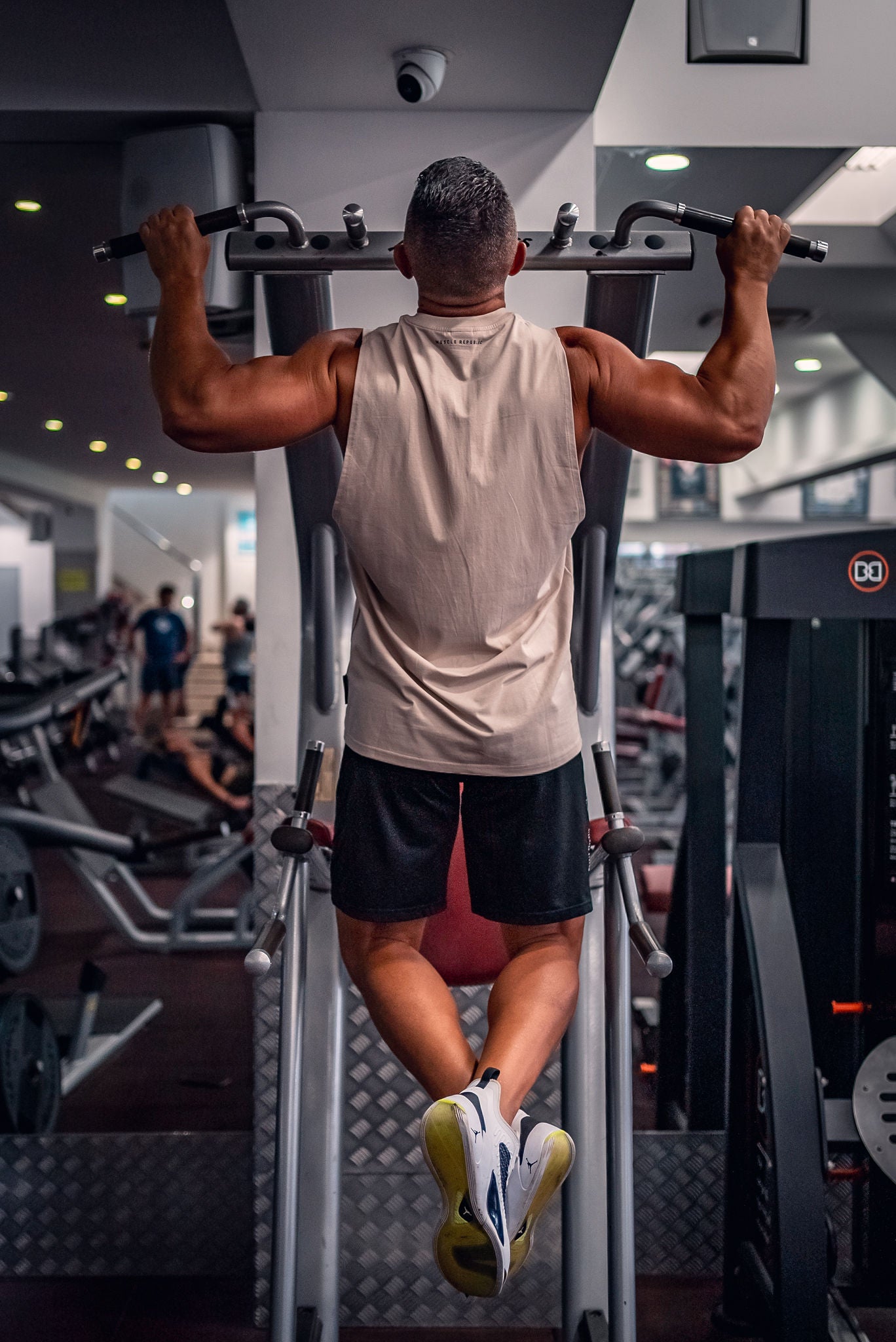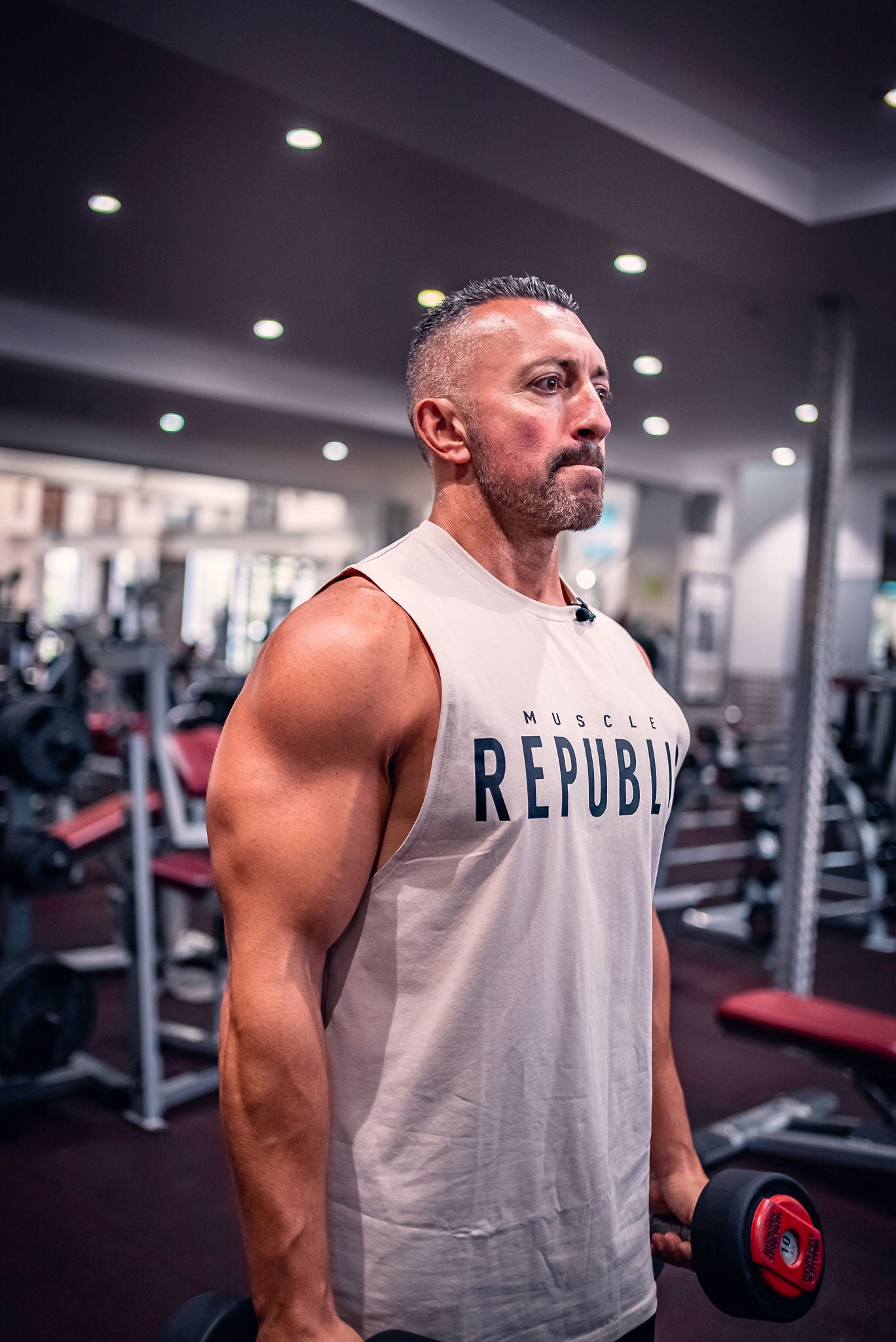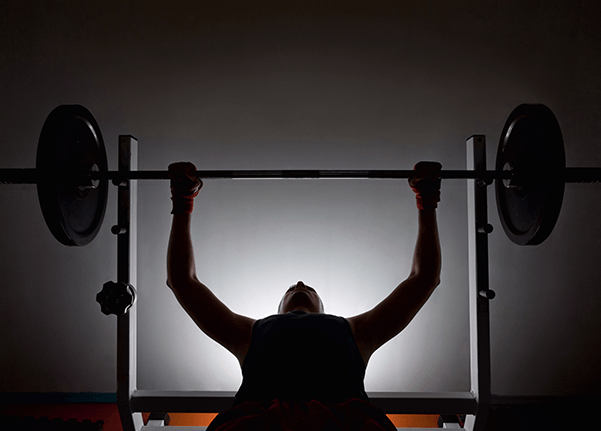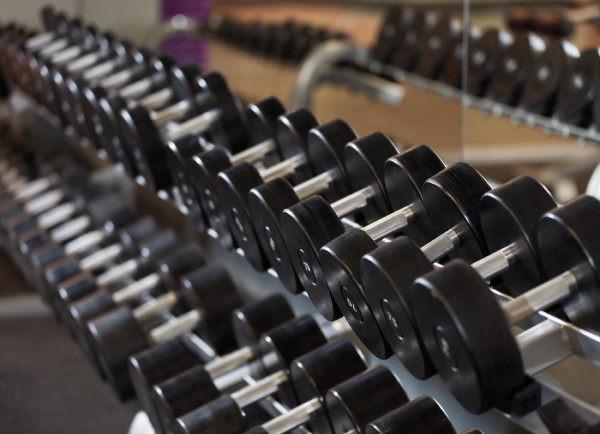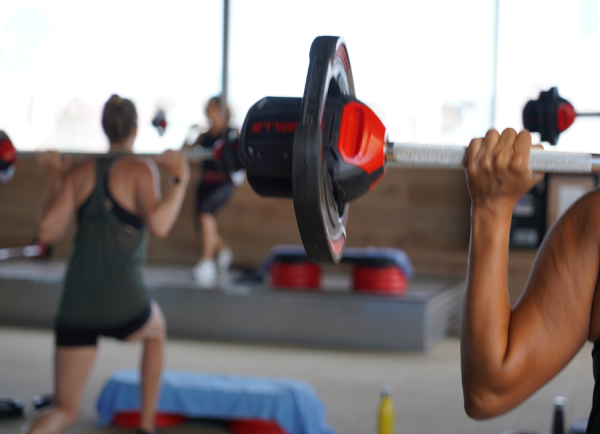
Physio Sam gives us the low down on lower back pain
Can you please tell me a little bit about yourself and why you chose to pursue physiotherapy?
I grew up in Tasmania and have always been interested in sport. Tasmania was a really special place to grow up, with big open spaces, friendly people and easy access to nature. I remember having so much fun as a kid playing in our garden and running through the street, as it literally felt like a big play ground.
I have played soccer since I was 5 years old and represented Tasmania for a period of time. I remember always looking forward to Saturday morning as a kid. Waking up early and putting on my soccer boots and watching cartoons. Pokémon was the best. I would honestly look forward to that day every week.
I would spend hours as a kid kicking the ball around in our street with all my mates. Using the walls and fences around the round about as goals. And getting in trouble many times for smashing windows. Whenever I would get new soccer boots I would wear them nonstop, even in the off season. I really have some great memories growing up in Tasmania.
In year 10 I dislocated and fractured my elbow getting tackled while playing AFL at lunch time. My injury required major surgery and I still have a metal rod through my medial epicondyle and Humerus.
Post operation I had to undergo intensive physiotherapy and rehabilitation to achieve full function and return to sport. Which was so hard at the time being away from sport for so long. But in the end it was a blessing in disguise as I got to see firsthand what a difference Physiotherapy could make.
After that I choose to do my work experience at a Physiotherapy private practice clinic and ever since then I knew that this is what I wanted to do. This motivated me to finally do my homework and try hard at school as my report cards always said ‘Sam has potential but doesn’t apply himself’. That was that.
I got into Physiotherapy and moved to Sydney to study at The University of Sydney which has been amazing as I have made so many great friends and university ended up being some of the best years of my life. I am so happy that I moved to Australia and now truly call Sydney home.
It has all worked out better than I could have imagined as being a Physiotherapist is my dream job. I love that I get to help people every day and I am so fascinated about the human body and how it works perfectly together.
I started off working at the Royal Prince Alfred Hospital, where I discovered my true passion for sporting and musculoskeletal Physiotherapy. Ever since then I have been working in private practice. I also worked as a Physiotherapist for various sports teams from premier league soccer, to first grade rugby league and AFL.
I have also had two year working in London as a Physiotherapist which was fantastic as it allowed me to do a lot of travelling as well. I got the opportunity to venture to America, across Europe and also to Nepal. I have always loved travelling and seeing the world, but it has also made me realise how lucky we are in Australia.
I am so happy to be back home in Sydney and working at The Wright Physio at Titan Fitness. This has been the best job that I have ever had, as there are so many happy and positive people working here that all have the same great purpose to help people to achieve their fitness goals.
All my friends know me as a happy and positive guy. I am really empathetic and honestly want to help as many people as I can to be healthy again. Especially because I know firsthand what it is like to be on the other side. If you ever have any questions come and say hello as I am always happy to help.
Lower back pain is a very common complaint. Why do you think it is so common in today’s society?
Lower back pain is the most common injury we see in the clinic and in today’s society. It is caused from poor posture, lack of movement, prolonged sitting, incorrect technique in the gym and from lack of self-maintenance.
Human beings are not designed to sit at a desk 8 hours a day, 5 days a week or spend hours on your smart phone that you can’t leave home without. This, combined with a lack of education of the right things to do heightens the problem. For example the majority of the population do not take their recovery as seriously as their training until they get a major injury and it is too late. Don’t let that happen to you. Majority of lower back pain can be prevented from happening in the first place if you do the right things.
What steps would you take to treat someone with lower back pain?
Firstly we will do a full assessment to determine their diagnosis and what has caused the injury in the first place. To see if it is a disc injury, a facet joint injury, if there is nerve impingement, a stress fracture, or even something more sinister that would need to be referred to the hospital for.
This involves us taking a history, looking at their posture and biomechanics, assessing muscle length and tension, determining stiff joints e.g. lumbar spine facet joints, stiff hips or pelvis, looking at neural tension and also if there is any nerve impingement.
Once we determine what the injury is and the underlying problem, we then educate the patient on what is going on and how to fix it. Education is key to fixing the underlying problem. This may include giving advice about posture at home and at work and also addressing lifting technique at the gym or when playing sport.
What we find in the assessment determines how we treat that patient. This will involve at home exercises and manual treatment to help you to get out of pain and correct your biomechanics. Such treatments include soft tissue massage, dry needling, joint mobilisations, manipulations and many other techniques. Our end goal is to make the patient independent so that they can self-manage and return to what they love doing without the injury coming back in the future.
What are your top 3 tips for preventing lower back pain from occurring in the first place?
1. Changing your posture every 30 minutes. Your next posture is your best posture.
2. Doing self-release work with a foam roller and a ball every week. If you have any questions just come in and ask.
3. Having the correct mindset. Understanding the power of the mind/body connection. There is so much research showing the strong connection between the two. Pain and pleasure are so close in the brain. Therefore how you perceive pain is extremely important. For example if you start getting back pain after sitting all day at work. On the one side you should view pain as a good thing. Otherwise if you focus on the pain as a bad thing, research shows that you actually send more pain signals there, which makes the pain worse, which then means you focus on it more, which again makes the pain worse and the cycle continues. On the other hand you should not go looking for pain or ignore pain. As that is the body telling you that there is an issue to fix. So yes, view pain as a good thing when you are in it, but as soon as you have pain you should come and talk to us to guide you. Don’t leave it until it becomes a serious injury.
If you already have lower back pain, are there any particular exercises you would advise to avoid?
Well of course it depends on what type of back pain you have e.g. if it is a disc injury, or there is nerve impingement, or if it is a facet joint injury or even something more sinister like a fracture. So it is well advised that if you are in pain, not to ignore it and to go and see a Physiotherapist first to assess and to give you guidance.
Generally you want to firstly avoid anything that compresses the spine e.g. barbell back squats, dead lifts, kettle bell swings, or weights overhead. Also avoid anything where the spine is not in a neutral position e.g. abdominal crunches, Russian twists, and even leg press as you are in a seated position.
But of course it all depends on what type of injury it is. If you guys ever have any questions we are always happy to help. So just pop your head in at any time if you have any queries.
The Wright Physio offers a free 15 minute complementary consultation to Titan members. Can you please tell us a bit about what this consultation entails?
The free 15 minute assessment for all Titan members will include a full history, full postural and biomechanics analysis, a full physiotherapy objective examination to determine a diagnosis and education on your injury.
If you decide to go ahead with treatment after that all Titan members just have to pay a follow up rate rather than the full initial assessment rate. Otherwise all Titan members can book in a full initial assessment at a discounted rate.
Where can people go to contact you and find out more about your services?
You can come in and say hello at any time at The Wright Physio. We are just inside Titan Fitness at 29-31 Alfreda Street. We also have another clinic at 67 Dudley Street. You can contact us by ringing the following numbers 02 9665 3936 or on 02 9664 9972.
If you enjoyed this article, please subscribe to our emailing list to receive more inspirational and educational content. Also, if you haven’t already, please follow us on Instagram, Facebook and YouTube.
I grew up in Tasmania and have always been interested in sport. Tasmania was a really special place to grow up, with big open spaces, friendly people and easy access to nature. I remember having so much fun as a kid playing in our garden and running through the street, as it literally felt like a big play ground.
I have played soccer since I was 5 years old and represented Tasmania for a period of time. I remember always looking forward to Saturday morning as a kid. Waking up early and putting on my soccer boots and watching cartoons. Pokémon was the best. I would honestly look forward to that day every week.
I would spend hours as a kid kicking the ball around in our street with all my mates. Using the walls and fences around the round about as goals. And getting in trouble many times for smashing windows. Whenever I would get new soccer boots I would wear them nonstop, even in the off season. I really have some great memories growing up in Tasmania.
In year 10 I dislocated and fractured my elbow getting tackled while playing AFL at lunch time. My injury required major surgery and I still have a metal rod through my medial epicondyle and Humerus.
Post operation I had to undergo intensive physiotherapy and rehabilitation to achieve full function and return to sport. Which was so hard at the time being away from sport for so long. But in the end it was a blessing in disguise as I got to see firsthand what a difference Physiotherapy could make.
After that I choose to do my work experience at a Physiotherapy private practice clinic and ever since then I knew that this is what I wanted to do. This motivated me to finally do my homework and try hard at school as my report cards always said ‘Sam has potential but doesn’t apply himself’. That was that.
I got into Physiotherapy and moved to Sydney to study at The University of Sydney which has been amazing as I have made so many great friends and university ended up being some of the best years of my life. I am so happy that I moved to Australia and now truly call Sydney home.
It has all worked out better than I could have imagined as being a Physiotherapist is my dream job. I love that I get to help people every day and I am so fascinated about the human body and how it works perfectly together.
I started off working at the Royal Prince Alfred Hospital, where I discovered my true passion for sporting and musculoskeletal Physiotherapy. Ever since then I have been working in private practice. I also worked as a Physiotherapist for various sports teams from premier league soccer, to first grade rugby league and AFL.
I have also had two year working in London as a Physiotherapist which was fantastic as it allowed me to do a lot of travelling as well. I got the opportunity to venture to America, across Europe and also to Nepal. I have always loved travelling and seeing the world, but it has also made me realise how lucky we are in Australia.
I am so happy to be back home in Sydney and working at The Wright Physio at Titan Fitness. This has been the best job that I have ever had, as there are so many happy and positive people working here that all have the same great purpose to help people to achieve their fitness goals.
All my friends know me as a happy and positive guy. I am really empathetic and honestly want to help as many people as I can to be healthy again. Especially because I know firsthand what it is like to be on the other side. If you ever have any questions come and say hello as I am always happy to help.
Lower back pain is a very common complaint. Why do you think it is so common in today’s society?
Lower back pain is the most common injury we see in the clinic and in today’s society. It is caused from poor posture, lack of movement, prolonged sitting, incorrect technique in the gym and from lack of self-maintenance.
Human beings are not designed to sit at a desk 8 hours a day, 5 days a week or spend hours on your smart phone that you can’t leave home without. This, combined with a lack of education of the right things to do heightens the problem. For example the majority of the population do not take their recovery as seriously as their training until they get a major injury and it is too late. Don’t let that happen to you. Majority of lower back pain can be prevented from happening in the first place if you do the right things.
What steps would you take to treat someone with lower back pain?
Firstly we will do a full assessment to determine their diagnosis and what has caused the injury in the first place. To see if it is a disc injury, a facet joint injury, if there is nerve impingement, a stress fracture, or even something more sinister that would need to be referred to the hospital for.
This involves us taking a history, looking at their posture and biomechanics, assessing muscle length and tension, determining stiff joints e.g. lumbar spine facet joints, stiff hips or pelvis, looking at neural tension and also if there is any nerve impingement.
Once we determine what the injury is and the underlying problem, we then educate the patient on what is going on and how to fix it. Education is key to fixing the underlying problem. This may include giving advice about posture at home and at work and also addressing lifting technique at the gym or when playing sport.
What we find in the assessment determines how we treat that patient. This will involve at home exercises and manual treatment to help you to get out of pain and correct your biomechanics. Such treatments include soft tissue massage, dry needling, joint mobilisations, manipulations and many other techniques. Our end goal is to make the patient independent so that they can self-manage and return to what they love doing without the injury coming back in the future.
What are your top 3 tips for preventing lower back pain from occurring in the first place?
1. Changing your posture every 30 minutes. Your next posture is your best posture.
2. Doing self-release work with a foam roller and a ball every week. If you have any questions just come in and ask.
3. Having the correct mindset. Understanding the power of the mind/body connection. There is so much research showing the strong connection between the two. Pain and pleasure are so close in the brain. Therefore how you perceive pain is extremely important. For example if you start getting back pain after sitting all day at work. On the one side you should view pain as a good thing. Otherwise if you focus on the pain as a bad thing, research shows that you actually send more pain signals there, which makes the pain worse, which then means you focus on it more, which again makes the pain worse and the cycle continues. On the other hand you should not go looking for pain or ignore pain. As that is the body telling you that there is an issue to fix. So yes, view pain as a good thing when you are in it, but as soon as you have pain you should come and talk to us to guide you. Don’t leave it until it becomes a serious injury.
If you already have lower back pain, are there any particular exercises you would advise to avoid?
Well of course it depends on what type of back pain you have e.g. if it is a disc injury, or there is nerve impingement, or if it is a facet joint injury or even something more sinister like a fracture. So it is well advised that if you are in pain, not to ignore it and to go and see a Physiotherapist first to assess and to give you guidance.
Generally you want to firstly avoid anything that compresses the spine e.g. barbell back squats, dead lifts, kettle bell swings, or weights overhead. Also avoid anything where the spine is not in a neutral position e.g. abdominal crunches, Russian twists, and even leg press as you are in a seated position.
But of course it all depends on what type of injury it is. If you guys ever have any questions we are always happy to help. So just pop your head in at any time if you have any queries.
The Wright Physio offers a free 15 minute complementary consultation to Titan members. Can you please tell us a bit about what this consultation entails?
The free 15 minute assessment for all Titan members will include a full history, full postural and biomechanics analysis, a full physiotherapy objective examination to determine a diagnosis and education on your injury.
If you decide to go ahead with treatment after that all Titan members just have to pay a follow up rate rather than the full initial assessment rate. Otherwise all Titan members can book in a full initial assessment at a discounted rate.
Where can people go to contact you and find out more about your services?
You can come in and say hello at any time at The Wright Physio. We are just inside Titan Fitness at 29-31 Alfreda Street. We also have another clinic at 67 Dudley Street. You can contact us by ringing the following numbers 02 9665 3936 or on 02 9664 9972.
If you enjoyed this article, please subscribe to our emailing list to receive more inspirational and educational content. Also, if you haven’t already, please follow us on Instagram, Facebook and YouTube.
Previous post
3 effective strategies to set fail-proof goals for 2018
Next post

